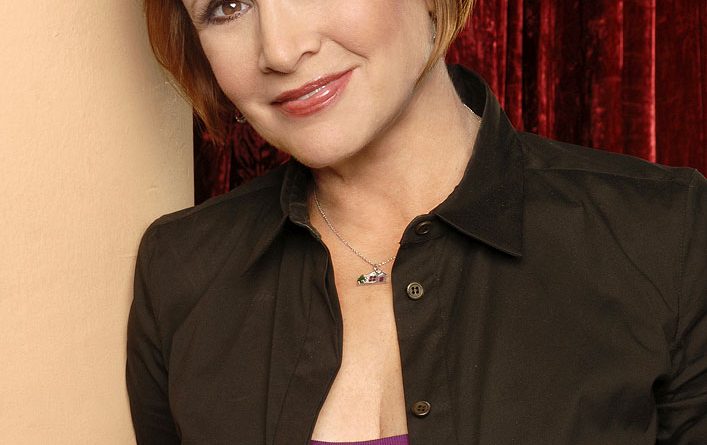My Tribute to Carrie Fisher: An Actress, Writer, & Advocate Who Happened to Have Bipolar Disorder
I sit here tonight saddened by the news of Carrie Fisher’s death at the age of 60. Her loss caps off a year in which we have lost many beloved celebrities (including another outspoken advocate with bipolar disorder, Patty Duke). Fisher was a talented actress (her most famous role of course being Star Wars’ Princess Leia), witty writer, and advocate for people with mental illnesses. Fisher had bipolar disorder. I started re-reading 2009’s Wishful Drinking tonight–one of Fisher’s memoirs–which she turned into a successful one-woman show. What struck me most about Wishful Drinking when I first read it is that many of my favorite parts had nothing to do with bipolar disorder even though I have this condition. Fisher demonstrated wit and grace in the midst of numerous trials such as her father Eddie Fisher famously leaving Carrie’s movie star mom, Debbie Reynolds, a then toddler-aged Carrie, and her baby brother, Todd, for Elizabeth Taylor. Things comically come full circle decades later when Carrie’s daughter, Billie Lourd, and Taylor’s grandson, almost start dating. There are too many surreal anecdotes in Wishful Drinking hilariously recounted by Fisher for me to share, and I would not be able to do them justice. I highly recommend you read the book, which you can purchase here. Fisher had a unique talent for laughing in the face of pain.
Body Image, Weight, and Medications
In Wishful Drinking, Fisher, talked about dealing with body image issues as a teenager, which were only exacerbated by living with an effortlessly beautiful, famous mother. Even though I’m not famous, I could relate to her struggle. It is hard to stay confident in a society that measures a woman’s worth by her weight and measurements. Carrie Fisher understood all too well the body image pressures women face. Fisher also candidly talked about the painful tradeoffs people with bipolar disorder are forced to make such as gaining weight from medications.
Carrie Fisher said, “Any mood stabilizer is a weight gainer, so you feel better, but you’re fat, so what you gain is a loss. It’s not a good situation.”
Weight gain is one of the least talked about aspects of living with this illness. In an interview with Diane Sawyer, Fisher said, “I have a chemical imbalance that, in its most extreme state, will lead me to a mental hospital.” Fisher described the alternating states of depression and mania.
Fisher explained, “I have two moods. One is Roy, rollicking Roy, the wild ride of a mood. And Pam, sediment Pam, who stands on the shore and sobs … Sometimes the tide is in, sometimes it’s out.”
A Prolific Writer and Fearless Advocate

For me, Fisher’s greatest legacy is that she was a multifaceted talent who just happened to have bipolar disorder. Carrie Fisher raised awareness for this oft-misunderstood disease but she never let bipolar disorder define her. Her career continued after her bipolar diagnosis and again after her hospitalization in 2013 (see video above). She was the force–an unstoppable force.
WATCH: Carrie and Debbie’s emotional 2011 Oprah Interview. They talk about everything including what it’s like to love a child who has bipolar disorder.
–Jessica Gimeno
Full disclosure: I am an Amazon associate.






Great read as usual you’ve convinced me to check out Wishful Drinking.